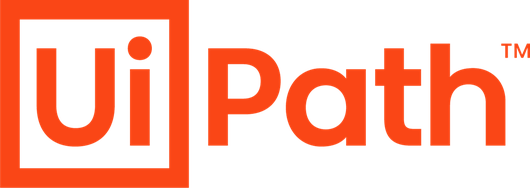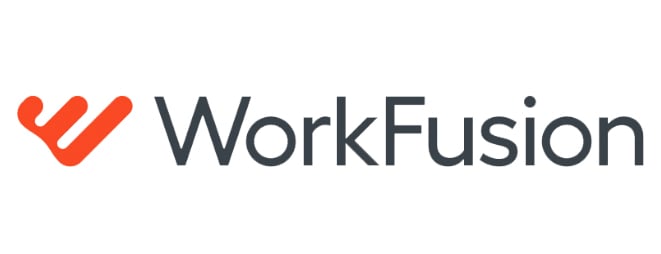- K More than 200 ready-made components
- K Reporting documentation always at hand
- K leverage existing systems to minimize disruption
- K Receive RPA analytics in Real-time
- K Security framework for robots
- K Built on cloud-native architecture
- K Handle repeatable, complex, or challenging tasks
- K Access to thousands of tools and AI skills
- K Zero infrastructure requirements for launch and scaling
- K Open front-end architecture gives you full control
- K Universal, comprehensive management dashboard
- K Clear audit trails for tracking and visibility
- K Receive automatic, real-time notification of IT issues
- K Automate any process, regardless of operating system
- K Bots can extract, manipulate, and utilize data
- K Intuitive drag-and-drop navigation
- K Integrate and connect bots with APIs
- K No license required to run RPA bots built in Pro Studio
- K Train bots on your documents without ML engineers
- K Pre-built automation solutions designed to lower costs
- K Brings together OCR, ML, NLP, RPA, BPM, analytics, and AI
- K AI that understands the languages of IT
- K Automate enterprise-wide with RPA, iPaaS & Ready Bots.
- K Unified platform for both business and IT operations
- K Designed to integrate with many leading AI technologies
- K Easily scale up the power of RPA to match your needs
- K Automatically identifies inefficient automatable processes
- K All types of application environments are supported
- K Build and deploy automation in days
- K Combine with cognitive capture, analytics, and more

- More than 200 ready-made components
- Reporting documentation always at hand

- Receive RPA analytics in Real-time
- Security framework for robots

- Handle repeatable, complex, or challenging tasks
- Access to thousands of tools and AI skills

- Open front-end architecture gives you full control
- Universal, comprehensive management dashboard

- Receive automatic, real-time notification of IT issues
- Automate any process, regardless of operating system

- Intuitive drag-and-drop navigation
- Integrate and connect bots with APIs

- Train bots on your documents without ML engineers
- Pre-built automation solutions designed to lower costs

- AI that understands the languages of IT
- Automate enterprise-wide with RPA, iPaaS & Ready Bots.

- Designed to integrate with many leading AI technologies
- Easily scale up the power of RPA to match your needs

- All types of application environments are supported
- Build and deploy automation in days
What is RPA Software?
Robotic Process Automation (RPA) software uses bots to automate repetitive tasks in software applications, in both front office and back office systems, that are normally manually performed by employees. A prime example of this would be data entry. These bots are able to capture data and manipulate software platforms in real-time the same way that human employees can. This technology is intelligent enough to interpret responses and communicate with other systems.
How does RPA Software Work?
In order to successfully automate certain tasks, RPA solutions provide users with development environments to build the workflow that kicks off the automation anywhere, anytime. These developer environments are typically drag-and-drop, meaning that users don't need a deep level of coding knowledge to work within them.After building out the workflows, this automation technology can perform actions such as logging into applications, moving folders to different locations on a device, and scraping browsers. RPA software tools often provide the ability to record a human user performing specific tasks, and the solution can subsequently learn from it and mimic those human actions. For example, RPA bots can be used to approve an application process or transfer data from one system to another.
RPA Software Features and Functionality
Here are some of the features and functionalities you should look out for in an RPA solution.- Drag-and-Drop Editor — An RPA solution should allow you to visually build your own process with no-code or low-code drag-and-drop editors. With this feature, you don't need any coding knowledge to create the process. A drag-and-drop editor will offer flowcharts that outline each step in your process that will eventually be automated by your software.
- Prebuilt Templates — In addition to the ability to utilize a drag-and-drop editor to build processes, your solution should offer a library of prebuilt workflow templates to base your processes on. This feature further simplifies the process-building component from the drag-and-drop editor since you won't be completely starting from scratch.
- Workflow Recording — Workflow recording is an alternate way to build your processes. Instead of dropping elements into the process, a user can record themselves manually performing certain workflows. An RPA solution can learn from the recording and then mimic those exact actions and repeat them an unlimited amount of times.
- Bot Performance Analytics Portal — An RPA solution will come with an analytics suite that can help you to gauge the performance of your bots. This feature lets users monitor and manage bots from an admin portal. The functionality can be used to troubleshoot issues and streamline future processes.
- Easy Bot Creation — Bots carry out the tasks that RPA software automates for your business. RPA tools will allow you to create new bots quickly for any new process you need to create. You can typically do this through an RPA tool's task editor.
- Bot Scheduling — Once you create bots, you can schedule the deployment in advance. The solution allows you to determine when you need to trigger certain processes and subsequently schedule the bot to carry out that process.
- Source Control — Source control securely stores each version of a process you are currently creating. This feature lets the developer examine each version of a process to identify the differences between the two. Overall, this feature tends to act as the main point of control for deploying new bots.
- Rules-Based Exception Handling — RPA tools can deploy bots with rules-based exception handling. That means that a bot can recognize an exception that you set for a process and then trigger the appropriate actions to make sure that there are no mistakes.
- Natural Language Processing (NLP) — RPA tools can intelligently automate everyday tasks because they are embedded with deep learning features, such as NLP. This is leveraged to ensure your bots can process and learn from what they see in the process in order to mimic the actions moving forward.
- Optical Character Recognition (OCR) — Optical character recognition is the process of converting images and text into machine-encoded text. This is how RPA tools can process files such as invoices and tax forms.
- Third-Party Integrations — RPA tools are often implemented to automate tasks in other applications, such as a CRM or an ERP system. Because of that, RPA tools are built to seamlessly integrate with a multitude of third-party software solutions, including various APIs.
RPA Software Benefits
Here are some of the top benefits you expect from bringing an RPA solution into your technology stack.- Improved analytics for workflow management — With bots automating your daily tasks, you will have data that is free of human error. That will lead to improved analytics, which in turn means your business will have the power to create accurate data-based decisions.
- Reduces human error — One of the more significant benefits of using RPA software is that it will significantly reduce employee error. That can ultimately save employees time, as they won't need to go back and rectify previous mistakes. That will give way to digital transformation across your organization.
- Virtually increase your staff — Hiring new employees is expensive, but an RPA solution can help you take on more work without expanding your staff, thanks to the digital workers that this software provides. Intelligent automation platforms are designed to automate simple, every-day tasks. With bots taking over some of your team's simpler tasks, your employees will be able to take on more complex work. That means that you'll be able to stretch your team's capacity without spending the money to hire new employees, thanks to the digital workforce that a robotic process automation solution can provide.
- Enhanced customer service offering – Using RPA solutions can help your customer service excel in a number of ways. As it takes over tedious tasks, such as looking into customer details, your agents can spend more time fostering relationships with customers. These automation tools can also improve process predictability. In the same way that RPA tools minimize human error, they ensure your processes remain predictable, ensuring that you always stick to company guidelines.
- Faster processing times – With a bot working through your various workflows, tasks will be completed at a quicker speed. So that means that customer transactions can be processed far quicker than they would if they were completed by human employees. Faster transactions will lead to a better customer experience.
- Improved governance — IT governance provides a structure for businesses to leverage their software stack in order to produce clear and measurable results — RPA tools can help to enhance that. This technology is designed to stick to rigid processes, meaning that it will help to keep a clearly-structured governance system in place. You can also utilize software robots to continually monitor systems to flag any activity that does not comply with your current governance structure.
- Better security — By implementing RPA bots with your existing software, you'll be able to boost your security across the board, protecting yourself from hackers. In order to break into your systems, hackers look for vulnerabilities that are mainly caused by human error. But with RPA bots, you will be eliminating that factor altogether. Not to mention, these tools log files of all activities, meaning that dangerous or suspicious activities will be tracked and recorded.
Questions to Ask RPA Vendors
Workfusion, Blue Prism, Micorosft, and Pega are among some of the top RPA providers on the market. The pricing and features you need in your software are just the tip of the iceberg. Take a look at these questions to assist in your decision making effort before purchasing a solution from them or another software.
Does this tool have strong exception handling?
The process automation software you go with needs to have strong exception handling, which is the process of responding to specific conditions related to the execution of a process. Exception handling is what detects potential errors during your various automated workflows.
That means that if your tool's exception handling is weak, your processes may potentially be riddled with errors. That's why it's important to talk to your potential RPA provider about the tool's exception handling capabilities.
How up-to-date is the vendor with technological advances?
RPA bot technology is highly advanced and, since it needs to work in conjunction with other tools, the software needs to keep up with current advancements in technology. That's why you need to look into your RPA provider’s commitment to technological innovation. It's ideal to find a vendor committed to releasing product updates at least on a yearly cadence. You can ask a vendor what plans they have on their product roadmap in order to see what is in store for upcoming releases.
How easy is the tool to scale?
Easy scalability is an important aspect of business process automation. You need to be able to quickly ramp up your software's automation capabilities in order to carry out extensive processes. It's also important to make sure your tool can handle the amount of usage you are anticipating you will need. So it's vital to look for an RPA tool that is easy to scale up whenever you need it to do so.
Does the tool meet your technical criteria?
Take stock of the processes you need RPA bots to carry out and make sure the tool you select can keep up with your needs and the guidelines your business has to follow. Some things you should consider are your system requirements, screen scraping capabilities, security, and more.
Key Considerations for Purchasing RPA Software
- Look for a streamlined user experience - One of the key elements of an RPA solution is the easy ability to create workflows. The solution user interface should be intuitive with easy-to-use tools and features. If users can feel comfortable creating new workflows, they will be able to create bots to carry out air-tight processes. In turn, a streamlined user experience will inevitably help to promote smooth business operations in your organization.
- A solid governance structure - Strong governance ensures that all your business processes are working smoothly, in order to get actionable results. Because of that, you need to look for a desktop application that can support strong governance. Some things to look out for are a dashboard that provides visibility to users, insight on ROIs, and notifications of all pending actions.
- Advanced reporting features - The solution you select should be able to collect and analyze operational data to see how effectively your company is running. For example, RPA technology will be able to provide insight on key factors such as how long certain processes take and which require human intervention. With this information, you can see where you need to make improvements and which automated workflows should be updated in order to better serve your business.
- Secure activity log - RPA bots work with a high level of data, and some of that is sensitive customer information. Because of that, you need to make sure your company remains compliant. A great way to do that is by making sure your RPA platform saves all automated workflows in an activity log on the platform. That way, your organization will have all activities on file, should they ever be needed in case of an audit.
RPA Software Trends
Artificial Intelligence — AI is one of the emerging top trends related to RPA software. Software vendors are always learning how to improve their bots, and one of the most common ways they are doing that is by continuing to implement AI and machine learning into the workflows.The more AI is woven into RPA workflows means the more intelligent your bots will become. That gives them the power to observe tasks, process what's required, and then carry them out on their own. AI is a constantly evolving technology, and it will continue to help improve RPA bots as it keeps evolving.
Much heavier focus on process — As it currently stands, RPA technology doesn't actively improve processes. It just works to carry them out automatically. However, there has now been a growing focus for bots to understand and optimize those processes.
Expect related technologies such as process mining, process optimization, and process orchestration to become a bigger part of RPA technology. By bringing these technologies into the fold, you can expect your bots to carry out more strategic and efficient processes.
More concern on data privacy — RPA technology is increasingly being used in departments that handle sensitive data. Because of that, there's a growing concern around data privacy. As RPA technology evolves to handle large sets of data to uncover valuable insights, there's more potential for a data leak. For that reason, companies that rely on RPA software need to have an increasing awareness of the ethical responsibilities of handling such large amounts of data.
Using complementary technologies to tighten RPA — Integrating RPA software with complementary technology such as process mining tools can improve the processes you need to automate. A tight integration blurs the lines between process and system, meaning that your task will run smoother than ever. This could even lead to autonomous automation, meaning that bots soon will no longer need human intervention to carry out certain tasks.
RPA Software Use Cases
Financial Services — Organizations in the finance industry use RPA software to automate a number of tasks such as comparing account balances between systems, processing invoices, and remediating discrepancies.Call Centers — Call center agents can utilize RPA processes in order to switch back and forward between screens and different platforms while they are on the phone with customers.
Sales Teams — RPA tools can help sales teams to carry out tedious tasks such as entering information like customer details in a CRM and updating scorecards.
Human Resources — HR teams can utilize RPA bots to source candidates. This technology can automate resume aggregation, assessment results, and interview notes.
Insurance Companies — Thanks to the way they can take in unstructured data, RPA tools can help automate claims processing and appeals processing for insurance companies.